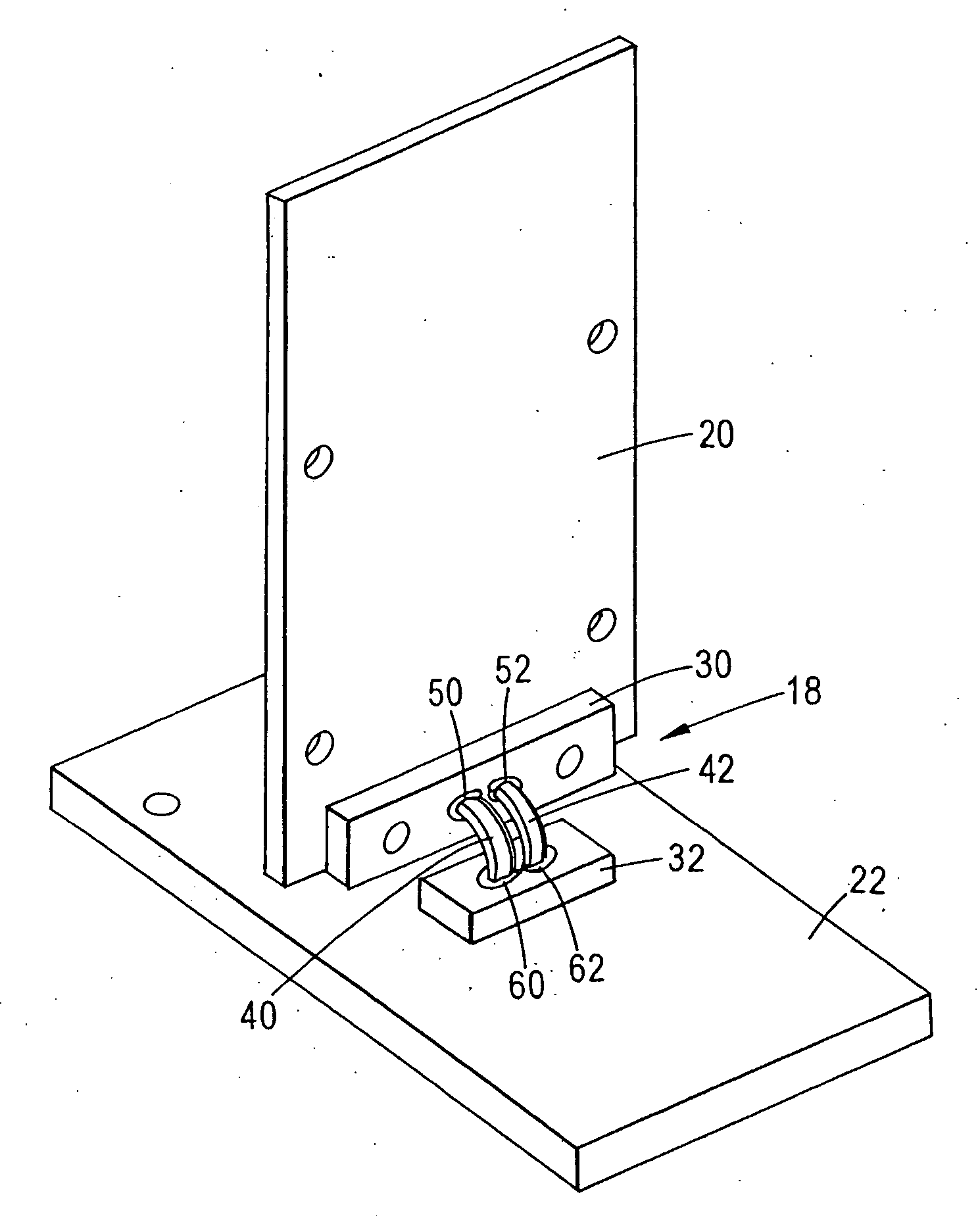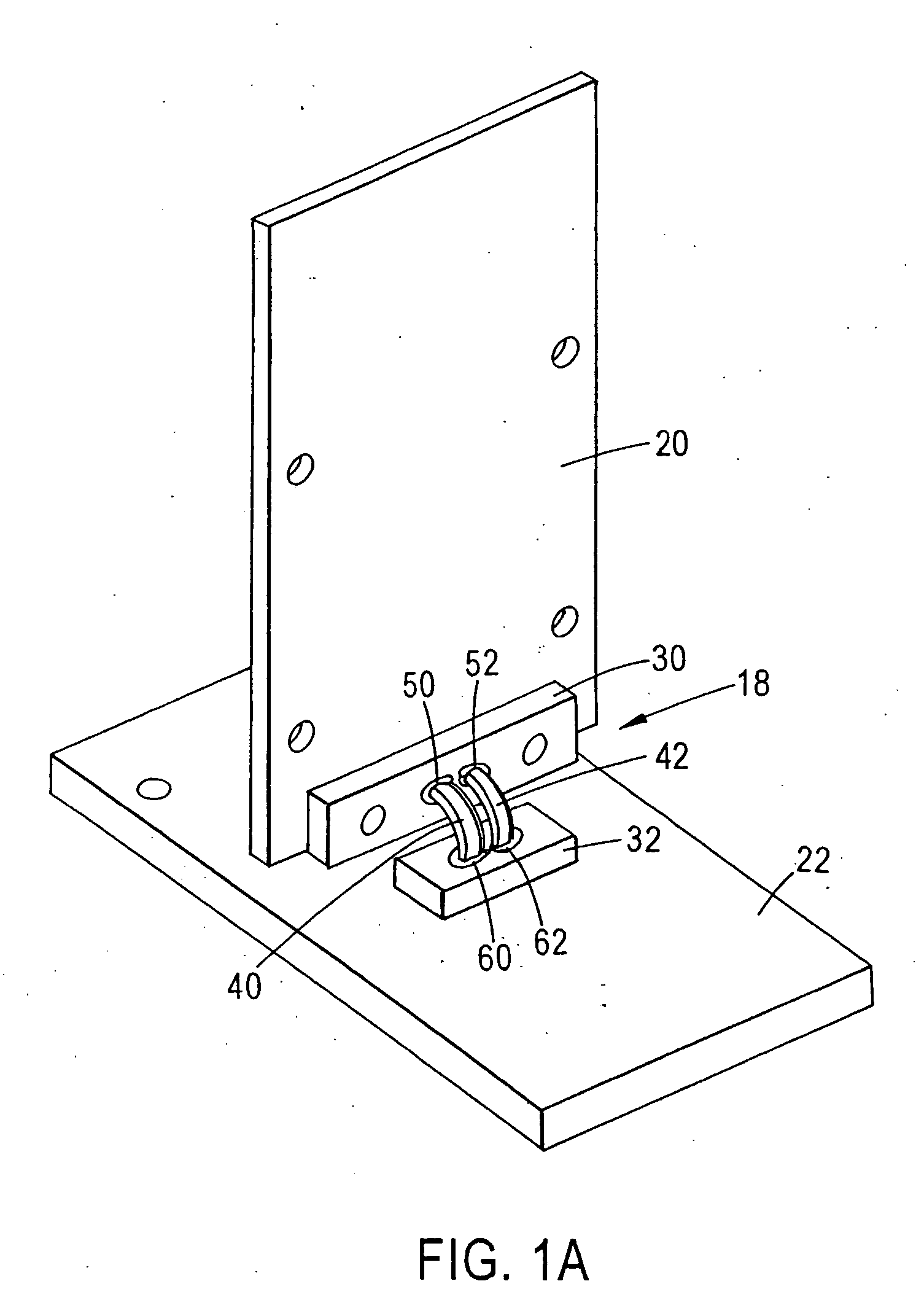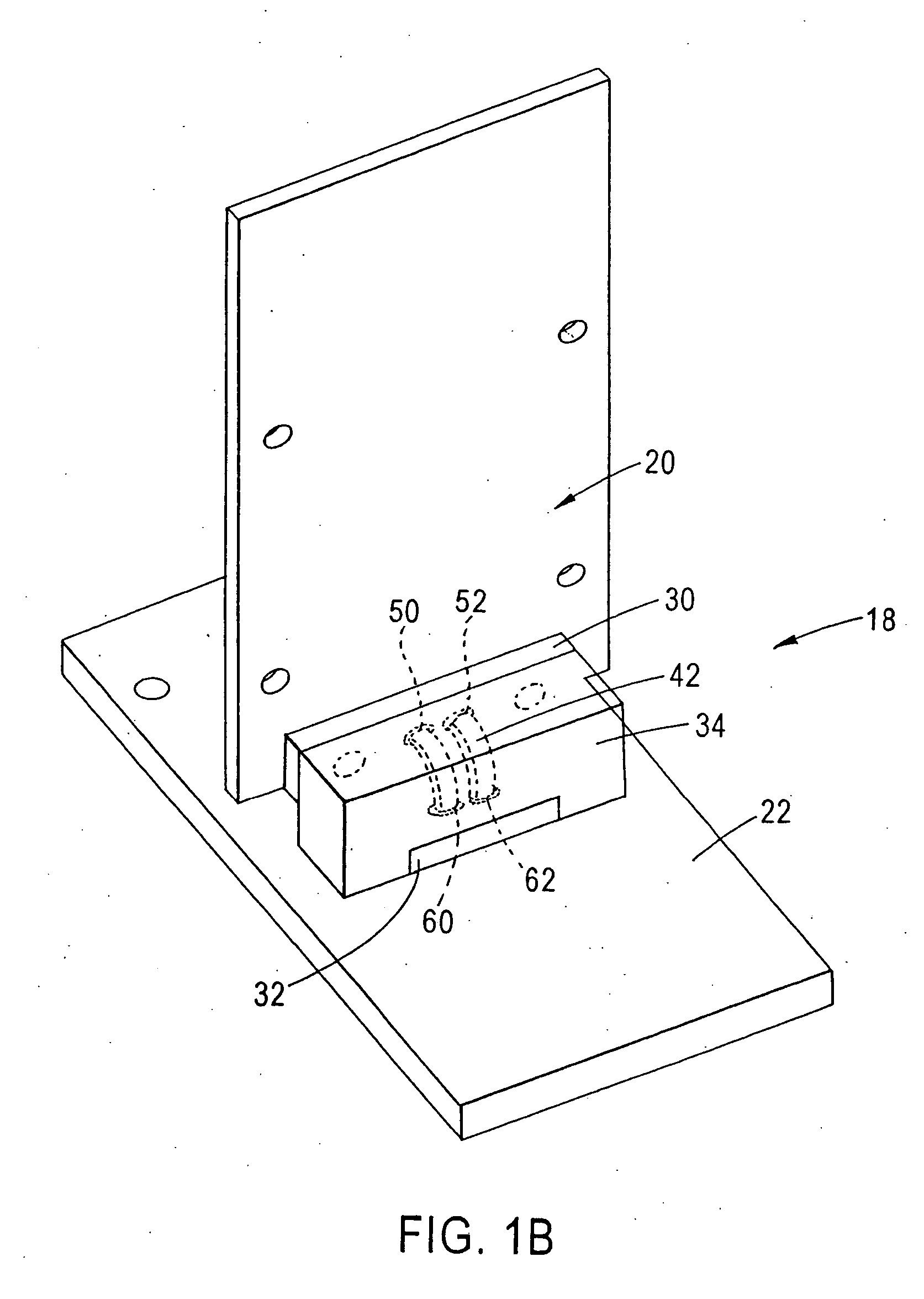High speed, high density interconnect system for differential and single-ended transmission systems
a transmission system and high density technology, applied in the direction of fixed connections, coupling device connections, electrical apparatus construction details, etc., can solve the problems of reducing the signal speed which can be accommodated, affecting the operation of the electrical apparatus, so as to achieve the effect of easy damag
- Summary
- Abstract
- Description
- Claims
- Application Information
AI Technical Summary
Benefits of technology
Problems solved by technology
Method used
Image
Examples
Embodiment Construction
[0067] The interconnect arrangement according to the present invention provides a unique twin axial shielded coax structure that has constant impedance from daughtercard interface to the backplane interface. The coaxial structure provides for constant impedance of 65 ohms single ended impedance, 50 ohms odd mode impedance and 100 ohms differential impedance. Advantageously, the present invention provides a controlled impedance connector through the ability to change the characteristic impedance of the electrical connector by changing the dielectric thickness and constant. This allows custom connectors to be made at different impedance values ranging from 35 ohms to 150 ohms or higher.
[0068] A single ended interconnect path utilizes one conductor to transfer data. A differential interconnect path utilizes two conductors to transmit the same data. The benefit of a differential interconnect path relative to a single ended interconnect path is that transmission speed increases and nois...
PUM
 Login to View More
Login to View More Abstract
Description
Claims
Application Information
 Login to View More
Login to View More - R&D
- Intellectual Property
- Life Sciences
- Materials
- Tech Scout
- Unparalleled Data Quality
- Higher Quality Content
- 60% Fewer Hallucinations
Browse by: Latest US Patents, China's latest patents, Technical Efficacy Thesaurus, Application Domain, Technology Topic, Popular Technical Reports.
© 2025 PatSnap. All rights reserved.Legal|Privacy policy|Modern Slavery Act Transparency Statement|Sitemap|About US| Contact US: help@patsnap.com



